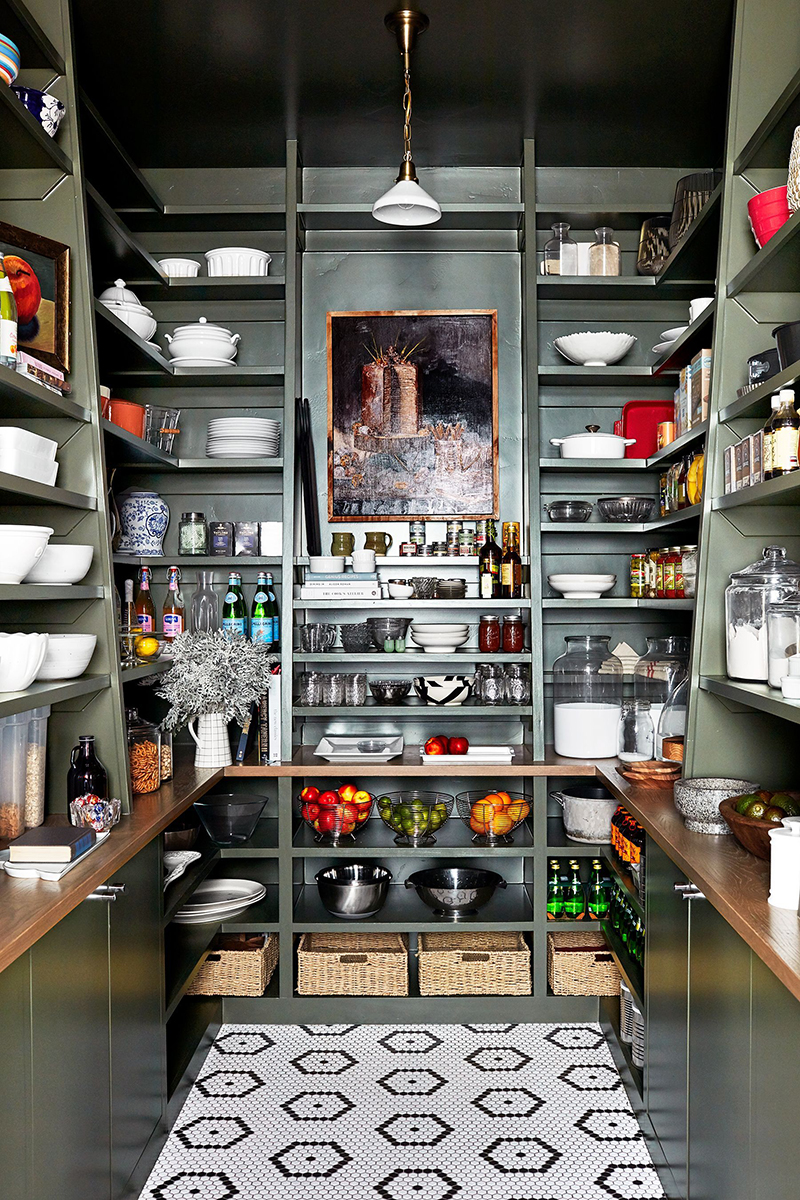Home organization has become a popular trend on social media platforms such as TikTok and Instagram, but Loyola University Chicago professor, Adia Harvey Wingfield, believes that the trend has a major blind spot. While the fad may seem harmless, Wingfield argues that the promotion of clean, organized homes is not just about tidiness, but also about systemic issues such as racism, sexism, and classism. “There’s this idea that cleanliness is next to godliness. We’re taught that having an organized home is a marker of being a good, upstanding citizen,” she said in an interview with The Guardian. “But this idea of cleanliness and orderliness is also deeply intertwined with racism, and it’s deeply intertwined with classism, and it’s deeply intertwined with sexism.”

According to a recent piece published in The Conversation by Jenna Drenten, an associate professor of marketing at Loyola University Chicago, the rise of perfectly organized pantries in the digital age is not as innocent as it may seem. Drenten, who has previously written about issues such as “masculine dominance” in video gaming and the politics of choice surrounding lipstick, seeks to explore the underlying societal expectations surrounding the “good homemaker.” She asks, “How did the perfectly organized pantry become so ubiquitous in the digital age? And what does it say about the expectations of being a good homemaker?”
According to the associate marketing professor, the pantry has evolved from a hidden storage space for food to a visible status symbol. “Greater visibility has made the pantry less of a utility closet for food and more of a status symbol,” she said.
Similarly to the trend of sharing “food porn” on social media, people now showcase images of their well-stocked shelves and organized kitchens online. One example is Christian influencer Rochelle Stewart, who regularly shares videos of her organizational skills with her over 440,000 followers, as seen in this post:
According to Drenten, the act of organizing one’s pantry and keeping things tidy may appear insignificant, but it is tied to one’s social status. Meanwhile, messiness is associated with assumptions about personal responsibility and respectability. While Drenten did not explicitly claim that being messy is anti-racist, she did suggest that the emphasis on niceness and orderliness is rooted in a history of classist, racist, and sexist structures. She briefly cites three academic papers to support her argument.
Drenten’s piece provides a hyperlink to a 2003 paper in the “Journal of Women’s History,” which argues that black women promoted “temperance, cleanliness of person and property, thrift, polite manners, and sexual purity” in part to demonstrate to white people “that African Americans could be respectable.” This paper supports the claim that the pursuit of cleanliness has racist undertones.

It is unclear from Drenten’s piece whether she believes that non-white individuals participating in “pantry porn” are trying to prove something to their white peers.
Additionally, the hyperlinked claim that the pursuit of cleanliness is “sexist” takes readers to a 2006 paper in the same journal that discusses the impact of the washing machine on perceptions of women and gender roles in Chilean society during the 20th Century. The paper suggests a perceived link between cleanliness and progress and raises questions about the implications of this association.
Drenten’s piece hyperlinks to a leftist activist publication’s claim that the pursuit of cleanliness is classist. The publication suggests that “many working-class people have aspired to respectability – maintaining cleanliness in the home, presenting an image of ‘niceness’ through neat modes of dress, or speaking ‘proper’. This respectability is intended to show those in power that working-class people are worthy of their attention and assistance.”

According to the publication, boorishness and disorderly conduct could be seen as threatening to “the white bourgeoisie,” especially since “respectability was linked to white nationalism.”
All three external sources cited in Drenten’s piece appear to assume that the function of cleanliness and niceness is respectability, and that respectability is a way to fulfill the expectations of perceived racial and class superiors.
Drenten remarked, “Cleanliness has historically been used as a cultural gatekeeping mechanism to reinforce status distinctions based on a vague understanding of ‘niceness’: nice people, with nice yards, in nice houses, make for nice neighborhoods.”
Critics argue that Drenten’s notion of higher standards of living and being linked to racism or racial bias is not unique to her on the left. In 2020, the Smithsonian Institute’s National Museum of African American History released a flier that stirred controversy. The flier suggested that rugged individualism, self-reliance, the nuclear family, rational linear thinking, quantitative emphasis, an emphasis on hard work as being key to success, punctuality, a preference for Christianity, decision-making, and the “Winner/loser dichotomy” were all aspects and assumptions of whiteness and white culture in the United States.
The National Museum of African American History & Culture wants to make you aware of certain signs of whiteness: Individualism, hard work, objectivity, the nuclear family, progress, respect for authority, delayed gratification, more. (via @RpwWilliams)https://t.co/k9X3u4Suas pic.twitter.com/gWYOeEh4vu
— Byron York (@ByronYork) July 15, 2020
Hold on to your mops and brooms, folks, because we’re about to dive into the scandalous world of “pantry porn” again! And this time, our resident cleanliness critic, Drenten, might need to sit down and take a deep breath. Brace yourselves, because we’re about to witness another example of the heinous act of organizing one’s pantry.
But wait, there’s more! It seems that Drenten isn’t alone in her pursuit of demonizing cleanliness. The Smithsonian Institute’s National Museum of African American History is also on board with the “racist cleaning” train, claiming that punctuality, hard work, and the nuclear family are all aspects of whiteness. That’s right, folks, apparently, if you’re not running late, slacking off, and living in a commune, you’re exhibiting symptoms of white privilege. Who knew? Dreten would definitely find something like this video troubling:
So, hold on to your Clorox wipes, because in this topsy-turvy world, being clean and organized might just land you in hot water.



